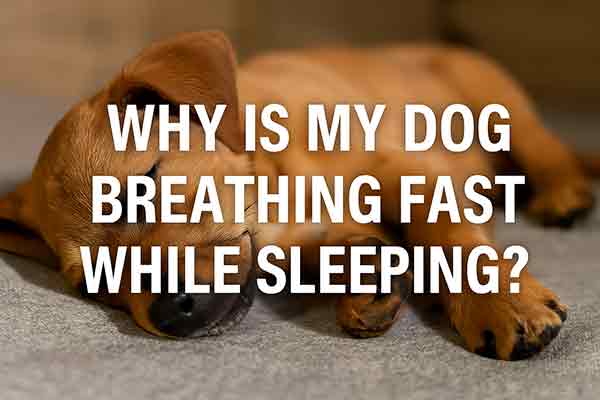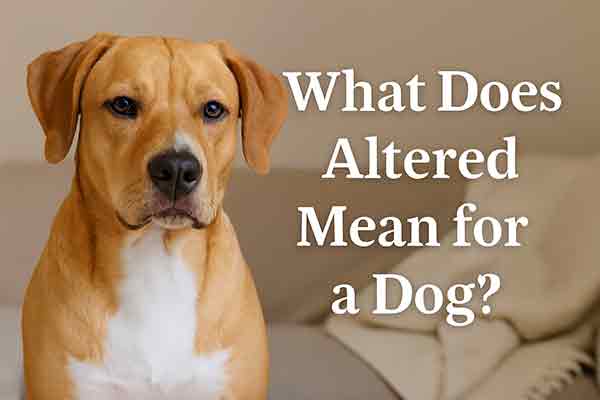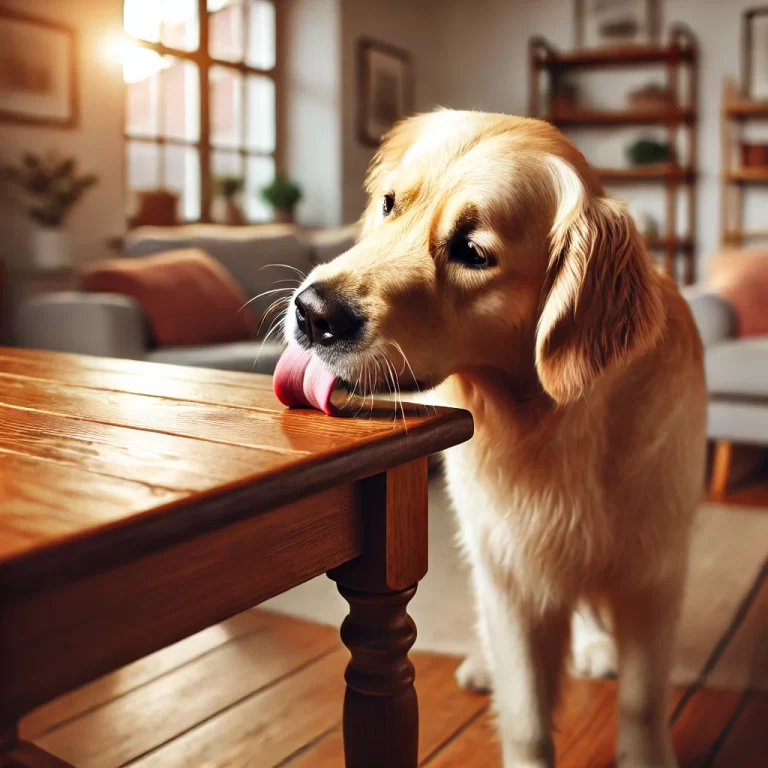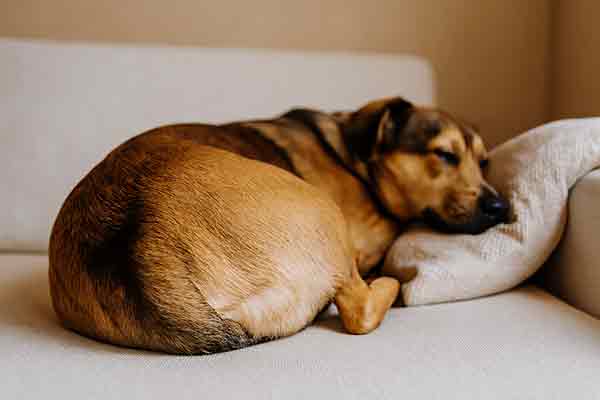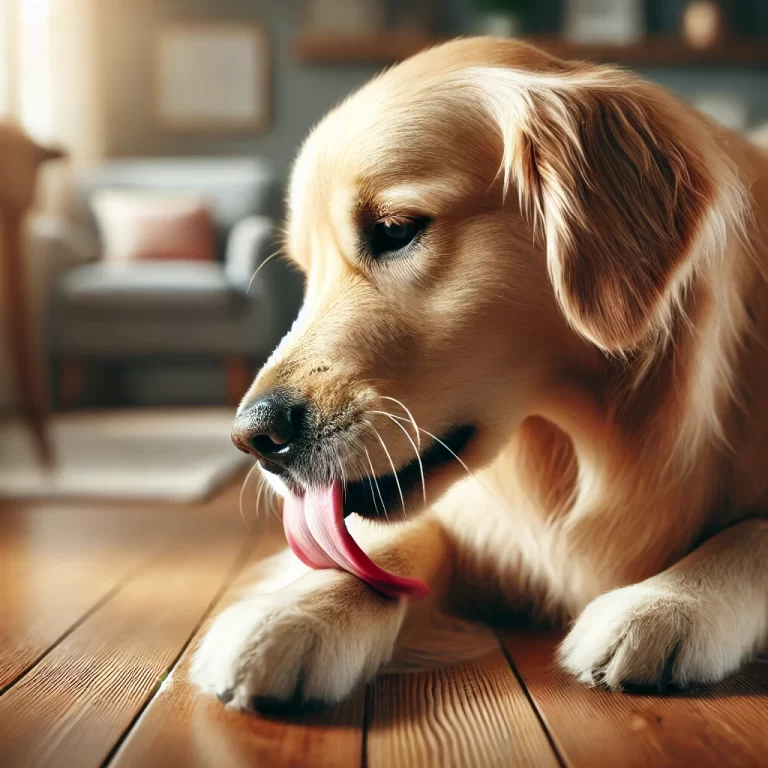Why Is My Dog Breathing Fast While Sleeping? | Causes & When to Worry
Table of Contents
- Introduction
- What Is Normal Breathing in Dogs?
- Why Do Dogs Breathe Fast While Sleeping?
- Common Causes of Rapid Breathing During Sleep
- When to Be Concerned About Fast Breathing
- Differences Between Puppies and Adult Dogs
- Tips for Monitoring Your Dog’s Breathing
- What Your Vet Might Do
- FAQ
- Conclusion
Introduction
Noticing your dog breathing fast while sleeping can be alarming. As pet owners, we’re tuned into even the subtlest changes in our dogs’ behavior. Rapid breathing may simply be part of the sleep cycle, or it could be a sign of something more serious. In this article, we’ll explore the possible reasons your dog is breathing fast during sleep and what you should do about it.
What Is Normal Breathing in Dogs?
Before we jump to conclusions, it’s important to understand what normal breathing looks like:
- Resting breathing rate for dogs: 10 to 35 breaths per minute
- During sleep or REM cycles: rate may temporarily increase
- Puppies may breathe faster than adult dogs
Use a stopwatch and count your dog’s chest movements for 15 seconds, then multiply by 4 to get their breaths per minute.
Why Do Dogs Breathe Fast While Sleeping?
Rapid breathing during sleep is often a natural part of your dog’s sleep cycle. Dogs, like humans, experience REM (Rapid Eye Movement) sleep, during which dreaming occurs. During this phase, it’s common to see:
- Fast or irregular breathing
- Eye twitching
- Whimpering or small movements
- Paw twitching or leg paddling
So, if your dog is breathing fast but otherwise appears relaxed and healthy, they may simply be dreaming.
Common Causes of Rapid Breathing During Sleep
While REM sleep is the most benign cause, there are several other reasons your dog might be breathing rapidly while sleeping:
1. Heat
Dogs cool themselves by panting. If they’re sleeping in a warm room or under blankets, their breathing may speed up to regulate body temperature.
2. Stress or Anxiety
Even in sleep, a dog experiencing chronic anxiety or recent stress may show signs like faster breathing, twitching, or whining.
3. Pain or Discomfort
Dogs experiencing pain may breathe faster, even at rest or during sleep. Conditions like arthritis or injury can go unnoticed until subtle signs like this emerge.
4. Respiratory or Cardiovascular Issues
Fast breathing can sometimes be a symptom of an underlying heart or lung problem, such as:
- Congestive heart failure
- Lung infections (like pneumonia)
- Collapsed trachea (common in small breeds)
5. Obesity
Overweight dogs are more likely to have difficulty breathing, especially when lying down or asleep.
6. Medication Side Effects
Certain medications, like steroids or painkillers, can cause increased respiratory rates as a side effect.
When to Be Concerned About Fast Breathing
While occasional rapid breathing is usually harmless, you should call your vet if you notice:
- Consistently fast breathing (over 40 breaths per minute)
- Labored or open-mouth breathing
- Blue or pale gums
- Lethargy, coughing, or collapse
- Appetite loss or other behavioral changes
It’s always better to err on the side of caution, especially with senior dogs or those with known health conditions.
Differences Between Puppies and Adult Dogs
Puppies often breathe faster than adult dogs, especially during sleep. Their higher metabolism, smaller lungs, and frequent REM cycles make quick breathing normal—so long as there are no other symptoms present.
As puppies grow and their respiratory system matures, their breathing patterns will typically slow down.
Tips for Monitoring Your Dog’s Breathing
- Keep a log of breathing patterns during sleep
- Take videos if you’re concerned, to show your vet
- Ensure your dog sleeps in a cool, well-ventilated area
- Monitor for other health changes (weight, energy levels, appetite)
What Your Vet Might Do
If you bring your dog in for fast sleeping breaths, your vet may:
- Check heart and lung function via stethoscope
- Perform a chest X-ray or echocardiogram
- Run blood tests to evaluate oxygen and organ levels
- Ask about environmental factors and medications
Treatment depends on the underlying cause—ranging from medication to weight loss recommendations or changes in sleeping arrangements.
FAQ
How fast is too fast for a dog to breathe while sleeping?
Anything over 35–40 breaths per minute while your dog is completely at rest (not dreaming) could be a concern and warrants a vet visit.
Can a dog dream and breathe fast?
Yes. Dogs experience REM sleep just like humans and may breathe fast, twitch, or even whine while dreaming.
Why is my puppy breathing fast when napping?
Puppies have a naturally faster respiratory rate and enter REM sleep more frequently, which can lead to fast breathing while napping.
What should I do if my dog’s breathing seems abnormal?
Record the behavior and contact your vet. Don’t try to diagnose or treat breathing issues at home without professional advice.
Is panting while sleeping normal?
Panting is not typical during deep sleep. It may indicate overheating, pain, or a health condition—monitor closely and consult your vet.
Conclusion
So, why is your dog breathing fast while sleeping? The answer may be as simple as dreaming or ambient temperature—or as complex as an underlying health condition. The key is to observe patterns, take note of other symptoms, and communicate with your veterinarian if you’re unsure. With attentive care and a little detective work, you’ll ensure your furry friend sleeps comfortably and stays healthy.
Explore our blog for more pet health insights, dog sleep behavior tips, and trusted veterinary-backed articles.

